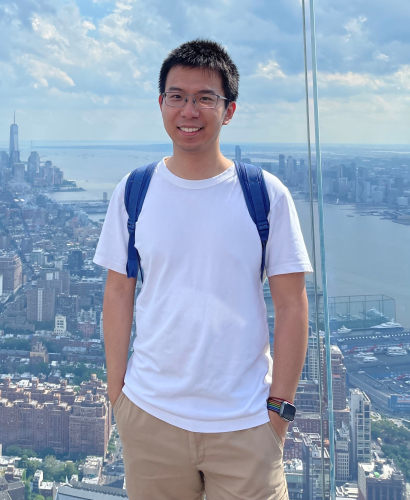
Words like “find” and “discover” make research sound like exploring a lightless cavern or some other vast unknown space. But in reality, it’s an investigation of what is known in order to increase understanding and reach new conclusions, thereby creating new knowledge. The problem is “the known” isn’t always accessible.
It’s common for research to hit a wall because data and other needed information are cost-prohibitive. The River Campus Libraries offers University of Rochester students, faculty members, and other researchers a couple of ways to break through that funding barrier.
If the data needed isn’t restricted to single users and is related to the humanities or social sciences, it may be obtainable through the Data Purchase Program. If licensing prohibits broad use of the data and the researcher is an undergraduate or graduate student on the River Campus, then the data may qualify for a Data Set Grant. Anyone who doesn’t meet these criteria should speak with their subject librarian about their data needs.
Recently, the recipients of the fall 2022 data set grants presented their projects. Check out what they’re working on below.

Original sin in economics
Economists Barry Eichengreen and Ricardo Hausmann used the phrase “original sin” to refer to scenarios in which emerging market economies could not use their domestic currency to borrow abroad. What makes this a “sin” is that it can negatively affect a country’s economic stability, capital flows, exchange rates, and credit ratings.
Liu Chang, a fifth-year PhD student from the Department of Economics, is exploring original sin from the perspective of corporate currency choices in trade and financing. Non-financial corporations in emerging market economies increasingly use foreign currency debt for financing. The reasons for this are a matter of ongoing debate.
Current literature suggests these decisions are motivated by carry trade, lower borrowing costs, signaling to foreign investors, or hedging against foreign exchange exposure. Chang aims to contribute to this literature, and with the help of her grant, she’ll be able to do it without spending $2,000 out-of-pocket.
First, she will link balance sheets to trade currency choices and work to fill a gap in the existing literature by constructing a comprehensive database that includes data on a firm’s currency choices in trade and financing. Second, she will present new firm-level evidence on how a firm’s export status and currency exposure in international trade may influence its choices in financing. Finally, she is developing a unified framework incorporating dynamic financing currency choices and exporting decisions, allowing discussions on optimal monetary and exchange rate policies in emerging markets.

Robots, the gig economy, and jobs
A “gig economy” refers to the activities in which people earn income from on-demand work, like driving for Uber or working as a personal trainer. In recent years, China’s gig economy has experienced rapid growth—almost 2 billion yuan (nearly $300 million) between 2015 and 2020, an annual growth rate of 13.3 percent. That growth has meant more job opportunities—it’s helped meet people’s needs in a new way. But not everyone is a fan.
The booming gig economy has created concerns about a labor shortage in the manufacturing industry. However, the accusatory finger-pointing at the gig economy fails to consider that automation and digital transformation might have changed the type of laborers needed, contributing to the shortage.
Lipeng Chen, a fourth-year PhD student from the Department of Economics, aims to study whether the industrial upgrades in China caused the labor shift from traditional manufacturing to gig economy platforms.
Chen’s research will be done, in part, by measuring the intensity of industry upgrading by looking at the exposure to robots in local labor markets. Thanks to his data set grant, he purchased the data from the International Federation of Robotics. He will also measure the distribution of labor forces across sectors using data from China City Statistical Yearbook and China Family Panel Studies, a national survey on individual occupation information. ∎
For more research, take a look at the spring 2022 grant recipients. For questions about data purchasing or data set grant program, please contact Kathy Wu, social science librarian for business, economics, government information, and law. And if you are interested in supporting the grant program, please contact Pamela Jackson, senior director of advancement for the River Campus Libraries.
Enjoy reading about the University of Rochester Libraries? Subscribe to Tower Talk.


